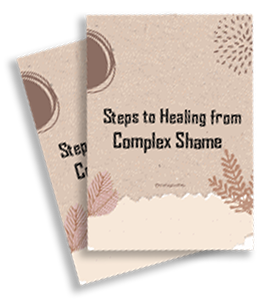
Hi! I’m DR. Zoe
I help women overcome Complex Shame™ and co-dependency so they can experience healthy love
and freedom.
READ MORE
Did you know that the issues in your marriage have little to do with the health of your marriage?
It’s not too surprising because I always talk about self-talk and how important it is. Well, guess what? The way you talk to your spouse is just as important as your own self-talk when it comes to the long term viability of your marriage. There are four main ways that you could be communicating with your partner that predicts with 93% accuracy whether your marriage will end in divorce.
Predicting Divorce in your marriage and what you can do about it:
This is actually not new information, but many of you have not heard about it, so I’m sharing. John Gottman and his wife, Julie, are psychological researchers and clinicians who study marriages and divorce prediction. They painstakingly listened to and analyzed elements of couples’ conversations over more than 30 years and have observed over 4000 married couples.
What he has found in his research is that there are 4 main communication styles that he calls the four horsemen, that predict divorce. He found that when couples use these four styles, he can predict with 93% accuracy that the marriage will end in divorce.
I remember first learning about this in grad school and feeling a bit blown away that he had cracked the code and could really figure out who was heading to divorce court and who wasn’t, JUST by listening to them talk. He didn’t need to hear the content – it didn’t matter what the issue was. He just listened to the way they talked about it and from that he could determine the health of their marriage
It’s pretty cool that he broke it down quantitatively. First, he found that you must have a 16 to 1 ratio of positive to negative interactions on a regular basis and 5 to 1 during the conflict in order to be a happy couple. I’ve never actually counted that ratio during any arguments with my husband, but just the knowledge that it exists actually helps me keep it in the back of my mind even when I am really angry at my husband.
Write that down. For every one of your negative interactions, you must have 16 positive ones when things are going good. And when you’re in conflict, thank God it’s only 5 positive to every negative. Now, this doesn’t predict divorce, but it does determine your happiness in your marriage.
These are the Four Horseman that do predict divorce and what you can do about it:
Horseman #1:
- Criticism. When you criticize your partner you are implying that there is something wrong with them. Gottman says you have taken a problem between you and put it inside your partner’s body. When you use the words “You always” and “You never’, your partner will feel attacked. Whenever you criticize someone, they tend to feel threatened, become defensive and they stop listening. And they start feeling bad about themselves in your presence, so you will also see avoiding behavior. And neither of you is likely to feel heard or appreciated.
- The antidote: Make a direct complaint that is not a global attack on your husband’s character and give him the solution. For example, “When you come home from work and ignore me and expect me to do all the chores when we’ve both been working all day, I feel hurt and like you don’t value or appreciate me. I would like it if you would take out the trash and make dinner together with me.” By telling your partner your solution, you offer him the chance to be the hero and fix it for you and his motivation to do so is increased because you haven’t obliterated his character in the process.
Horseman #2:
- Defensiveness. When your partner has a complaint and you respond with a counter-complaint or anger, you’re being defensive. This makes things worse and creates the same response in your partner. Before you know it, things have escalated and both of you are hurt.
- The antidote: The Antidote to defensive is to take some responsibility for the problem. A quick route to this is to tell yourself, my partner is right. How can I understand how my partner is right. Please note that this practice doesn’t automatically mean that you have to agree with your partner, but it does shortcut the process towards understanding your partner’s point of view.
Horseman #3:
- Contempt goes far beyond criticism. Criticism attacks your partner’s character, contempt assumes a position of moral superiority over them. When you mock your partner, call them names, roll your eyes or sneer in disgust, you are expressing contempt.Contempt is serious. These interactions effectively destroy any sense of security, affection, respect, and solidarity in your relationship.Gottman says if you separate out the four horsemen, Contempt is the single greatest predictor of divorce and it has to be eliminated.Research even shows that couples that are contemptuous of each other are more likely to suffer from infectious illness (colds, the flu, etc.) than others due to weakened immune systems! Contempt is fueled by long-simmering negative thoughts about the partner.
- The antidote: Check yourself when you are really angry and remember the power of those words to destroy your marriage. Don’t say everything you feel in anger, but focus on getting the clear point across without name-calling and put-downs. Gottman says to focus on building a culture of appreciation in the marriage. When you are not so angry, make a habit of finding things that you are grateful for in your spouse and letting them know what they are. It;’s not easy to change the way you communicate when you’re angry, especially if you grew up with your parents slinging zingers at each other when they were mad, but it can be done.
Horseman #4:
- Stonewalling. This happens when the listener withdraws from the conversation. It’s not the same as giving the cold shoulder, which we women are unfortunately pretty good at. Stonewalling happens during a conversation where the listener just shuts down. The stonewaller may look like he doesn’t care, but usually, he’s just overwhelmed and is trying to calm himself down. This doesn’t work, though because then you are left feeling like he doesn’t care. He may leave or walk out and that starts a vicious cycle where one of you is demanding to talk and the other is looking for an escape.
- The antidote: understand that arguing past the point of either one of you feeling overwhelmed is pointless. I know you want resolution, an apology or you just want to feel better, but it won’t happen if one of you is checked out. Forcing it will only cause more issues.
Learn to recognize when you or your partner are feeling overwhelmed and agitated. And agree to both check out for a few minutes to calm yourselves down.
It’s Uber important that you come back to the conversation, but only after you can both be present.
Basically, the four horsemen are checkpoints for relationship conflict. Staying aware of them and making sure you are working to eliminate then from your communication with your partner increases the chance that you two will see your golden years together.
The good news is that the outcome of your marriage is something that you have control over. You can change the way you communicate with your spouse and it can change the trajectory of your marriage.
You’ve got this!

Subscribe and Heal your Relationships.
You deserve a healthy, loving relationship and it starts with You. Learn how to untangle
Complex Shame™ and co-dependency to finally have the beautiful, secure relationship with
yourself and others that you’ve always wanted.
Subscribe and as a thank you, I’ll send you the Steps to Healing from Complex
Shame™.













